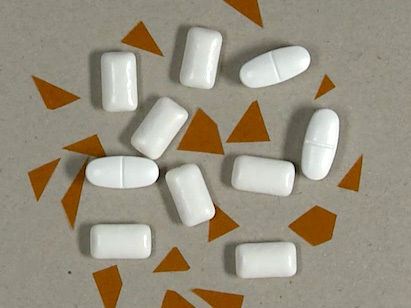Where in Europe do users ingest the highest quantities of unwanted substances via food?
The BfR is involved in a European research project for harmonised exposure estimation
How much dioxin or acrylamide do we ingest from food on average? Are consumers in Portugal or Iceland exposed to the same amounts as consumers in Germany? Are the substance contents in foods similar and the risks therefore comparable across Europe? Answers to these questions form the basis for risk management at the national and European level. The challenge: so far, no harmonised standards for data collection on potentially harmful substance contents in food exist. Comparative risk assessment is therefore hardly possible at present. This is about to change. The aim of the interdisciplinary European research project “Total Diet Study Exposure” is to assess the health risks of residues and contaminants in food in Europe using comparable standards. In the project, the Federal Institute for Risk Assessment (BfR) develops, together w ith 25 European partners, harmonised and standardised procedures for data collection. The BfR studies the questions of seasonal and regional differences in residues and contaminants in food and trend analysis. “A harmonised data collection method will significantly improve data on the occurrence of substances in food, thereby reducing uncertainties in the assessment of risks for the population”, says BfR President Professor Dr. Dr. Andreas Hensel.
A total diet study is the method through which data on concentration of heavy metals, dioxins, PCB, process contaminants (e.g. acrylamide) and food additives in foods are collected. The ambition of such a study is to infer data, for all substances eaten by consumers, on the substance contents in food as well as the intake of substances for the specific foods eaten in different regions. One strength of total diet studies is that foods are not analysed before they are processed but rather in the condition in which consumers typically eat them. This is especially significant for substances which, in addition to their natural presence, are formed during industrial processing or even – as in the case of acrylamide – when they are prepared in private households, i.e. during cooking or frying (so-called process contaminants). So far, data from total diet studies are available only in a few European countries. These existing total diet studies have been obtained using different methodological approaches. For this reason, comparative risk assessment is difficult to conduct.
The interdisciplinary European research project “Total Diet Study Exposure” currently establishes harmonised and standardised procedures for data collection. The methodology is being developed further for the purpose of comparative risk assessment. The project defines what comparable data will be collected all over Europe in the future. These data will then be accessible for the purpose of risk management of a large number of substances. This notably concerns the selection of food and the substances to be investigated, sampling and sample preparation, analysis and evaluation of data.
The project is sponsored by the European Commission with approximately 6 million and runs for four years (February 2012 to January 2016). ANSES (Agence nationale de sécurité sanitaire de l´alimentation, de l´environnement et du travail), the French sister institution of the BfR is responsible for the overall coordination of the project. Apart from the BfR and ANSES, 24 European partners are involved in the project.
Most read news
Organizations
Other news from the department science

Get the life science industry in your inbox
By submitting this form you agree that LUMITOS AG will send you the newsletter(s) selected above by email. Your data will not be passed on to third parties. Your data will be stored and processed in accordance with our data protection regulations. LUMITOS may contact you by email for the purpose of advertising or market and opinion surveys. You can revoke your consent at any time without giving reasons to LUMITOS AG, Ernst-Augustin-Str. 2, 12489 Berlin, Germany or by e-mail at revoke@lumitos.com with effect for the future. In addition, each email contains a link to unsubscribe from the corresponding newsletter.




















































